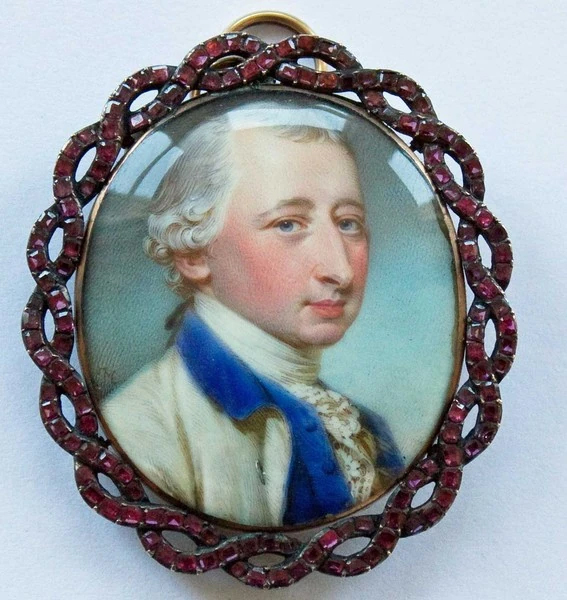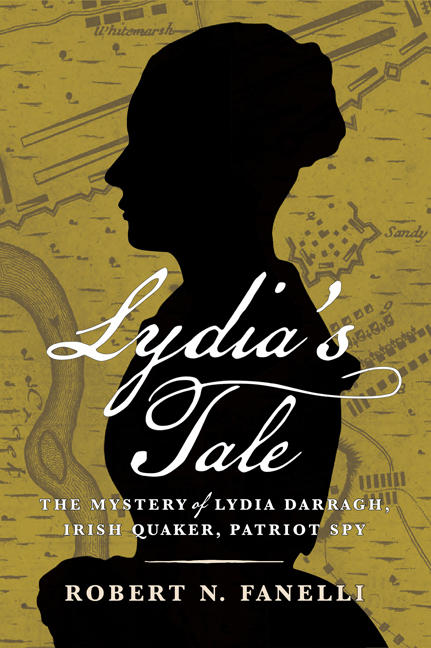What inspired you to start researching and writing about the Revolution?
I got into history in 5th grade when my mom bought me a Civil War computer game from the school book fair. I got into the Revolution later that summer when my family finally got cable and I watched an American Revolution documentary on the History Channel. As I started reading more books about the time period, I was fascinated by the struggle for high ideals and the compromises (oftentimes tragic) that the people of that time period had to make to approach those ideals. As I started to dig deeper into some of the leading figures of the time period, I started seeing little bits of my personality in their own personalities (Jefferson’s shyness in large groups, Adams’s iconoclastic instincts, etc.). That helped me to see them as actual people no different from myself or anyone else, which, to me, made them even more fascinating to study given the significance of what they accomplished.
What historians or books have most influenced your work? Why?
I’d say that the two most influential authors for me are David McCullough and Joseph J. Ellis. McCullough’s skill at narrative writing and Ellis’s of interpreting the personalities of the leading figures of that age—finding a common thread within each that explains them to modern readers—are the two skills that I most admire and try to emulate in my own writings. In regards to Ellis especially, it’s been said that all Western philosophy is just footnotes to Plato; and sometimes I fear that my own analyses of the Washingtons, Jeffersons, and Hamiltons is pretty much the same: just footnotes to Ellis.
What are your go-to research resources?
The diaries, letters, memoranda, and public documents left behind by the Founders—most of which I can access from the other part of the country thanks to the Library of Congress, the Library of America, and other organizations. The joy in researching the Revolutionary generation is the immense volume of writings they left to us. They knew they were unique and that they were making history that would be studied and referred back to for generations after they were gone. That self-awareness comes through in their papers. With that said, what makes this paper trail endlessly fascinating is that, despite their careful consideration of the judgment of history and their deliberate cultivation of their writings, I think the personalities and characters of each of these men (and women) still come through and are discoverable by us, nearly two-hundred and fifty years later. The idea that they are “impenetrable” melts away after even a cursory reading of their writings.
Which of your own JAR articles is your favorite or most rewarding? Why?
I don’t think I’ll ever love something I’ve written more than “John Adams: Portrait of the Founder as a Young Schoolmaster.” I got the idea for the article about ten years before I wrote and published it. I had just graduated from college and was going through a crisis of sorts as to what I was going to do with my life and how I was going to fulfill the ambitions I’d had as a kid now that I was, all of the sudden, an adult. Reading Adams’s diary entries from his two-year stint as a schoolmaster—also just after he had graduated from college, also tormented by self-doubts and fears that his ambitions would amount to nothing: that he would live and die and be forgotten in “the common herd”—was a lot like having my own thoughts and fears read back to me. Like him at an identical point in his life, I doubted whether I could discipline myself and harness the skills I had to achieve my own ambition of writing, publishing, and teaching history. Ultimately finishing the article after I had gone through grad school, become a teacher, and had the privilege of having a couple articles published by JAR was a seminal moment for me. I got to write about someone I felt a deep sense of empathy towards, and it was also definitive evidence, to me at least, that I was able to achieve those childhood ambitions and overcome those early-adult doubts, as he had himself. It just took me a little longer. I’m no John Adams.
Other than your own contributions, what are some of your favorite JAR articles?
John Knight’s “Be a King George” is the first one that comes to mind. Understandably, Americans tend to focus on the American-side of the Atlantic when looking at the American Revolution, but I’ve become increasingly fascinated by the major figures on the other side of the Atlantic—figures who had their own sets of motivations, formative experiences, personalities, and perspectives that shaped the course of history with the American colonies. Explaining these, as Mr. Knight does with George III, is half the battle in understanding why the American Revolution happened as it did. I also greedily read some of the works done on the “B List” members of the Founding Generation: Harlow Giles Unger on Robert Morris, Keith Muchowski on Isaac Roosevelt and Rufus King, and Gabriel Neville on Henry Laurens, just to name a few. These are all fascinating figures who not only shaped events during their time, but would be a lot better known if they hadn’t had the misfortune of living in a time and place of such immense political talent.
What books about the American Revolution do you most often recommend?
For a general history of the period, Robert Middlekauff’s The Glorious Cause is my first recommendation, followed by Alan Taylor’s American Revolutions, which does an excellent job at both expanding the scope in which we understand the period and tying common themes together. Richard Beeman’s political histories of the Revolution are as underrated as they are exemplary. If you’re looking for a biography of a specific person, check to see if the aforementioned Joseph J. Ellis, or John Ferling, or Gordon Wood wrote one. With all that said, read what the figures from that time period themselves wrote. Through their diaries, their letters to each other, their pamphlets, and so forth, they not only provided their interpretation on what they were doing but they challenged each other on those interpretations. The upshot is a pretty candid, honest history left by those who made it.
What new research/writing projects are you currently working on?
Apropos to the comments I made about understanding the characters and perspectives of the leading figures on the British side, the major project I’m working on now is a look at Edmund Burke. His personal background made him sympathetic to the plight of the American colonists, and long before he would become famous for excoriating the French Revolution he became the major intellectual leader of parliamentary opposition, such as there was, to the ministry’s American policies. In so doing, he would formulate coherent arguments on the Americans’ behalf years before Americans themselves would coherently formulate them. Then again, I’ve written two other articles since I started working on the Burke piece, so I can’t promise it will be the next one I submit.
Is there anything you have written for JAR that you would revise now or that you’ve changed your perspective on?
I tend to be pretty hard on Thomas Jefferson, and sometimes when I go back and look at what I have written on him I feel a pang of guilt that I’ve dwelt too much on the negatives in his personality. My sympathies lie with Washington and Adams—men who I think were much more dependable, much more were willing to make personal sacrifices, and who were much more self-aware (and less duplicitous) than was Jefferson. With that said, he authored (quite eloquently) the ideals his generation struggled to instill and that, more importantly, millions of people across history ever since have appealed to in their own struggle for “life, liberty, and the pursuit of happiness.” That is a significant achievement that continues to pay dividends two centuries later—and counting. He also deserves to be admired for the optimistic way in which he viewed human nature, and expressed those views in his papers, even if that outlook sometimes blinded him to some of the defects in human nature—and in his own nature.
What other hobbies/interests do you enjoy?
I’d get a lot more research and writing done if I didn’t spend so much time going to and watching every sports game I possibly can. My lifetime passion is Seahawks football; my lifetime penance is Mariners baseball. I’ve gotten big into soccer too. Otherwise I’m going to previously undiscovered breweries with my girlfriend and buddies or re-reading Patrick O’Brian’s Aubrey-Maturin novels.
Why is the Journal of the American Revolution important to you?
The United States is exceptional in the sense that we lend our identity and our sense of ourselves not to an ethnic or geographical identity, but to a core set of precepts and ideals. These were crafted, defended, and sacrificed for by the men and women of the American Revolution. It is this period—and the ideals they postulated and oftentimes failed to adhere to—to which each succeeding generation of Americans has grappled with and appealed to in our never-ending quest for “a more perfect union.” I love the Journal of the American Revolution because its daily scholarship of that period is a well-spring of research and insights that nourish us in this process—that provides the resources we need, now more than ever, to make good on the promissory note written to us by the Founding generation.








2 Comments
Great article Geoff! Thoroughly enjoyed reading what has inspired you. Just curious if you were aware of the programs available through the American Revolution Institute of the Society of the Cincinnati, specifically the Traveling Trunk program and the Professional Development program for teachers, to name a couple?
https://www.americanrevolutioninstitute.org/classroom-overview/
I was not aware — thanks for the heads-up!